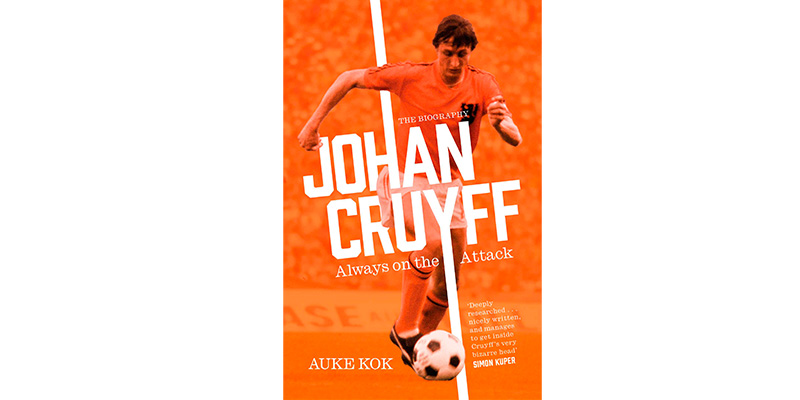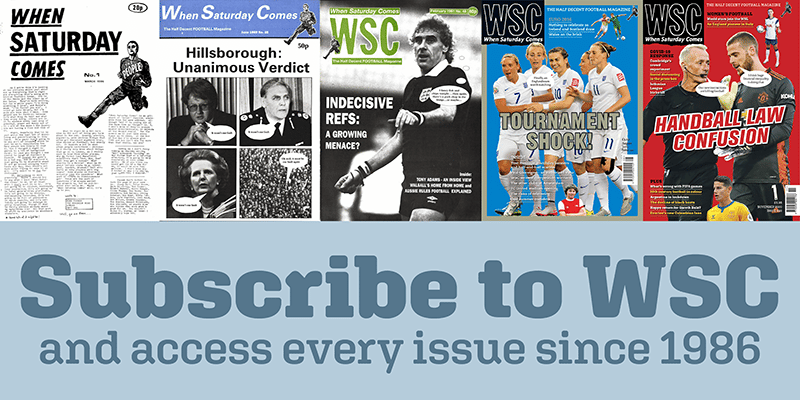
Translated by Liz Waters
Simon & Schuster, £25
Reviewed by David Stubbs
From WSC 426, November/December 2022
Buy the book
“Playing football and scoring goals are two different things,” Johan Cruyff once said, and certainly there is an aesthetic quality to his play that transcends the utilitarianism of the scoresheet. After all, his most famous manoeuvre, the Cruyff Turn, didn’t actually lead to a goal. Cruyff was always a good talker, avoiding cliches the way he did tackles, and, often to the annoyance of his team-mates, was a relentless chatterbox on the pitch. This tome, weighty and exhaustive to a fault, examines every aspect of Cruyff’s life and career, turbulent, chopping and changing, at loggerheads with fellow players and managers yet always finding a way of returning, time and again, to both Ajax and Barcelona.
Cruyff was rather slight and it was thought that his better-built brother Henny would go on to make the grade as a player. As a youth, Johan could barely muster the strength to take a corner kick but made up for his lack of long-range ability by developing his dribbling skills. He never needed to look at the ball at his feet and so was able to look up, read the field and offer his unsolicited opinions to fellow players. Despite his own social conservatism, his dislike of pop music and 1960s culture, he was a creature of an impending modernity, in look and style.
He had his virtues – although he once informed a referee that “it’s Mister Cruyff to you”, he neither looked up to, or down upon, people, regardless of their status – and treated all alike. And, despite the occasional fling, he was uxorious, devoted to his wife Danny, a constant in his ever-shifting life. He was, however, very careful with money and shameless about accumulating it. He took to charging for interviews and embarked on a variety of business enterprises, assisted by his father-in-law Cor Coster, as if football alone could not sate his competitive streak. That was intense in him – he was once sent off in a charity match – triggering headaches and precluding him from enjoying his football, although he persisted with it. He had a pronounced fear of failure which, the author suggests, explains in part his decision not to play in the 1978 World Cup, as he felt he might be exposed globally as a declining force.
As a player Cruyff was anti-disciplinarian, as a manager at Barcelona and Ajax very pro it. He would not have got along with his young self. He did recognise and effectively mentor both Dennis Bergkamp and Pep Guardiola but managed to wind up Frank Rijkaard, who screamed at him “Fuck you and your interminable moaning!” and stormed off from training, never to return.
This book also highlights some of the quaint follies and mores of the 1960s and 1970s as Dutch football evolved from barely professional standard to the modern vanguard of total football. Cruyff was at the vanguard of the vanguard. A difficult man but one of the easiest ever to watch.
This article first appeared in WSC 426, November/December 2022. Subscribers get free access to the complete WSC digital archive
Tags: Ajax, Barcelona, John Cruyff, Netherlands
